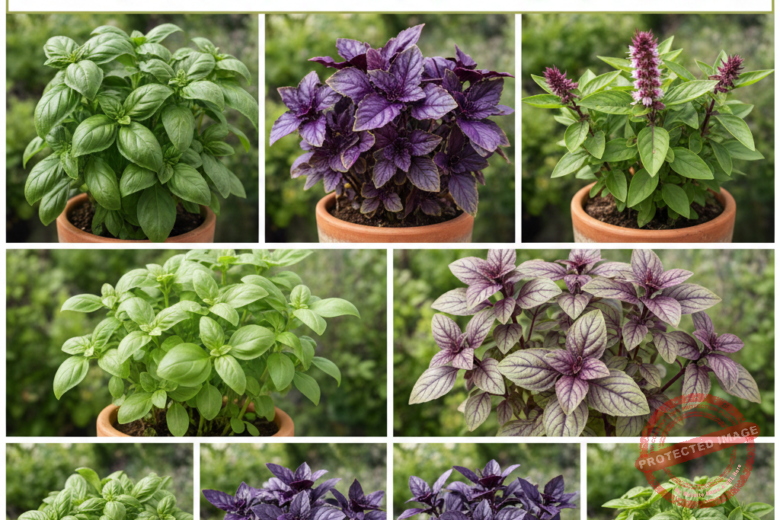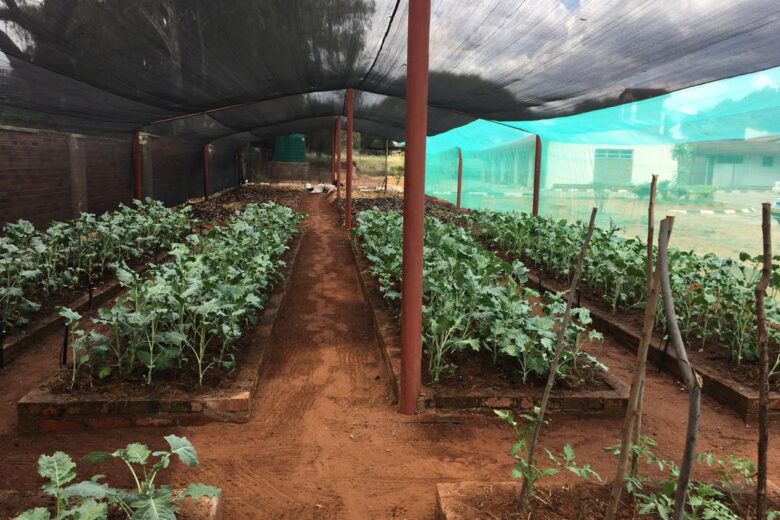Growing apples in Kenya is a great way to take advantage of the abundance of land and resources available in the country. Plus, it is an exciting and rewarding endeavor. Apples are nutritious and delicious fruit that can be enjoyed fresh or used in many recipes.
However, the most important factor to grow apples in Kenya is the climatic condition because apples grow better in areas with a cold climate, for them to grow properly.
All of the steps involved in growing apples in Kenya such as Apple Variety Selection, Selection of Farm Location, Land Preparation, Seed Preparation, Planting, Proper Watering, Apple Farm Maintenance, Fertilizer Application, and Harvest.
With the right knowledge and care, you can successfully cultivate apples in Kenya and enjoy the fruits of your labor.
How To Grow Apple in Kenya
Growing apples in Kenya is relatively easy, provided the correct conditions are met. To start growing apple in Kenya, make sure you go through the steps discussed below.
Step 1: Apple Variety Selection
The first step in growing apple in Kenya is to select the best apple variety for your particular climate and soil conditions. Some popular apple varieties that have proven successful in Kenya include Red Delicious, Golden Delicious, Fuji, Granny Smith, and Gala.
Other apple varieties that may be suitable include Braeburn, Honeycrisp, and Ambrosia. As you select your varieties, make sure to research the ideal temperature and soil conditions, as well as the proper timing for planting and harvesting. Additionally, you may want to consult a local expert, such as an agricultural extension agent, to ensure you are selecting the best apple variety for your location.
Step 2: Selection of Farm Location
As you begin to search for the ideal location to plant apples, make sure you put the following in consideration.
#1. Consider the climate
The climate in Kenya is suitable for apple farming as it is generally warm, with temperatures ranging from 25 C -30 C. The best time for apple farming is during the dry season (October to April).
#2. Soil conditions
Apple trees need well-drained soil that is slightly acidic (pH 6-7). The soil should be deep and have good water-holding capacity.
#3. Access to water
Water is essential for apple farming, so it should be easily accessible. It is best to select a location that has access to a reliable source of water, such as a river or lake.
#4. Availability of labor
Apple farming requires a lot of labor, so it’s important to choose a location where there is a large pool of potential workers.
#5. Proximity to markets
Apple farming requires access to markets in order to sell the apples. Selecting a location that is close to major cities and towns will ensure that the apples are sold quickly and at a good price.
Step 3: Land Preparation
Clear the land of all trees, shrubs, and weeds. The should be ploughed and tilled to a depth of at least 8-10 inches. Apply compost and/or manure to the soil to enrich it. Carry out soil testing to determine the fertility of the soil and the presence of pests and diseases. incorporate compost or make use of any other organic and chemical fertilizers to amend the soil.
Harrow the soil to make it level and then create furrows and ridges as per the requirement
Step 4: Seed Preparation
Sort out the seeds by separating the quality ones from the bad ones. You should soak the quality seeds in water 24 hours before planting.
Step 5: Planting
Plant the apple seedlings by tilling the soil to a depth of 10 to 12 inches. Also, the seedlings should be spaced between 8 to 10 feet apart in rows.
Start by collecting apple seeds from a ripe apple. Soak the seeds in a bowl of lukewarm water for a few hours to soften the seed coat. Fill a seed tray or pot with soil and lightly tamp it down.
Place the apple seeds on top of the soil and cover them lightly with a thin layer of soil, and water the soil until it is evenly moist.
Place the tray or pot in a warm spot that gets plenty of sunlight and keep the soil moist. Once the seedlings sprout, thin them out and transplant the healthiest ones into directly in the ground.
Step 6: Proper Watering
Water the trees regularly and deeply to keep the soil moist and encourage strong root growth.
Step 7: Apple Farm Maintenance
There are some maintenance activities you need to carry out after planting the seedlings. Importantly, they include:
Mulching
Mulch around the base of the trees to help retain moisture and protect against weeds.
Pruning
Prune the trees regularly to promote healthy growth and to remove any dead or diseased branches.
Pest and Disease Control
Use pesticides and fungicides to protect the trees from pests and diseases.
Step 8: Fertilizer Application
Apply fertilizer to the trees every few months to maintain healthy growth.
Step 9: Harvest
Usually, apple grow to maturity within 3 to 4 months from the time of planting. Once the apple fruit has fully germinated, you can pluck them from the tree.
Variety Of Apples Grown In Kenya
There are several varieties of apples grown in Kenya, including Golden Delicious, Red Delicious, Rome Beauty, Starking, and Granny Smith.
How Much Does Apple Crop Sell For In Kenya?
The price of apples in Kenya varies depending on the variety and the season. On average, a kilogram of apples can sell for between Ksh. 100 to Ksh. 300 (approximately $1 to $3 USD).
Best Agronomic Practices For Growing Apples In Kenya
To grow apples in Kenya, it is important to follow good agronomic practices, such as proper soil preparation, planting in well-drained soil, regular irrigation, fertilization, pruning, and pest control.
Additionally, selecting disease-resistant varieties and planting them in areas with good air circulation can help prevent diseases.
Projected Profit Of Growing Apples In Kenya
The profit from growing apples in Kenya depends on several factors such as the variety grown, the farming practices employed, and the market demand.
However, with good management practices, a farmer can expect to earn a net profit of Ksh. 500,000 to Ksh. 1,000,000 (approximately $5,000 to $10,000 USD) per acre per year.
Common Diseases And Pests Of Apple In Kenya
Common diseases of apple in Kenya include apple scab, powdery mildew, and fire blight.
Pests include codling moth and fruit flies. To treat these diseases, use appropriate fungicides and insecticides, as recommended by a professional.
Regular pruning of infected branches, proper sanitation practices, and early detection and control measures can also help prevent the spread of diseases and pests.
Different Propagation Methods Of Apple In Kenya
The most common propagation methods for apples in Kenya are grafting and budding.
Grafting involves attaching a scion of the desired variety onto a rootstock of a compatible variety.
Budding, on the other hand, involves inserting a bud from the desired variety into the bark of a compatible rootstock.
Both methods require careful handling and attention to detail to ensure successful propagation.
Where To Get Apple Seedlings In Kenya
Apple seedlings can be obtained from various nurseries in Kenya, such as the Kenya Agricultural and Livestock Research Organization (KALRO), which operates several nurseries around the country, as well as several private nurseries.
Seedlings can also be purchased online from some of the many nurseries that offer their services across the country, such as Ngethu Horticulture and Plant Nursery, Fruit Tree Nursery Kenya, and Plant Nursery Kenya.
Conditions For Growing Apples In Kenya
Apples can be grown in Kenya with the right conditions. A well-drained soil with a pH of 6-7 and adequate moisture is required. Apple trees require full sun and wind protection and should be planted in an area with good air circulation.
Pruning is important to ensure that the tree is healthy and producing quality fruit. Proper nutrition is needed in the form of fertilizers and pest control.
The right variety of apple tree should be chosen for the region and the climate.
Proper care and management of the trees and fruit are also necessary for successful apple production.
Wambugu Apple Farming In Kenya
Wambugu Apple Farming in Kenya is a small scale farm owned and operated by the Wambugu family in the Central Highlands of Kenya. The farm grows a variety of apple varieties including Granny Smith, Gala, Golden Delicious, Red Delicious and more.
Wambugu Apple Farming in Kenya is a great example of an innovative farming enterprise that has been able to take advantage of its location and the local climate to produce high quality apples for both the local and export markets.
The farm also employs the latest technologies and techniques to ensure the highest quality of apples are produced. The farm employs a team of dedicated and experienced horticulturalists who are dedicated to providing the best quality produce to their customers.
Is Apple Farming Profitable In Kenya
Apple farming can be a very profitable venture in Kenya. There is a high demand for apples and apple products from both local and international markets, and the country has ideal climate conditions that enable apple production.
How To Grow Apples In Kenya
Step 1: Choose a variety of apple tree to grow in Kenya. Make sure to select a variety that is suitable for the climate and conditions in the region.
Step 2: Plant the apple tree in a sunny spot with well-draining soil.
Step 3: Water the apple tree regularly, making sure the soil is kept moist but not saturated.
Step 4: Prune the apple tree to encourage more fruit production.
Step 5: Fertilize the apple tree in late spring and early summer with a balanced fertilizer.
Step 6: Protect the apple tree from pests and diseases by using insecticides and fungicides as needed.
Step 7: Harvest the apples when they are ripe and enjoy the fruits of your labor!
Are Apples Grown In Kenya
No, apples are not grown in Kenya. Apples are grown in temperate regions, which Kenya does not have. Apples are grown in the highlands and are mainly imported. There are a few small-scale apple orchards in Kenya, but they are not able to meet the demand for apples in the country.
Is Growing Apples Profitable
Growing apples can be a very profitable venture. The main factors that make it profitable are the high demand for apples, the low cost of production, and the wide variety of apple varieties that can be grown.
Apples are relatively easy to grow and can be harvested in a relatively short period of time. Additionally, the market for apples is large and growing, with many consumers looking for locally produced apples.
How Long Do Apples Take To Grow In Uganda
Apples take about 2-3 months to grow in Uganda. They can be grown in both dry and wet season. A variety of apple trees can be grown in Uganda, including Gala, Red Delicious, Golden Delicious, Granny Smith and Fuji apples.
Where To Get Apple Seedlings In Kenya
Apple seedlings can be purchased from local nurseries in Kenya. These nurseries usually stock a wide range of fruit tree seedlings, including apple. Likewise, apple seedlings can also be purchased online from various suppliers. Some of the online suppliers include Jambo Horticulture, Githiga Seeds, and Sunripe Seedlings.
Apple Farming In Kiambu
Apple farming in Kiambu, Kenya is an important agricultural activity for the local economy. The region is well-suited for the cultivation of apples due to its high altitude, cool climate, and well-drained soils.
Apples are grown mainly for export to the European market. Apple farmers in Kiambu use modern growing methods such as high-density orchard planting, irrigation, and pest control, as well as organic farming practices.
The most popular apple varieties grown in Kiambu are Fuji, Golden Delicious, Gala, and Red Delicious. The region is also home to several large apple-processing facilities.
Apple Farming PDF
Apple farming involves the cultivation of apples for commercial production. This type of farming requires a great deal of planning and preparation. Apple trees must be planted and cared for in order for them to be productive.
The trees must be pruned regularly and trained to grow in a specific shape and size. Apples must also be harvested at the right time in order to maximize their quality.
Organic and sustainable practices are the best way to ensure a successful harvest. Apple farmers must also be aware of the potential pests and diseases that can affect their apple crop in order to prevent or minimize damage.
Is Apple Farming Profitable In Kenya
Apple farming is a lucrative business in Kenya. Apples are a popular fruit in the country and they fetch high prices in the market. The demand for apples is high, and the Kenyan climate is ideal for apple production. Apple farmers can expect to make a good profit from their apple production.
Additionally, Kenya’s proximity to Europe and other major markets provides apple farmers with the opportunity to export their produce. All in all, apple farming is a very profitable venture in Kenya.
Apple Farming In Kenya PDF
Apple farming in Kenya is a lucrative agricultural business that can provide a steady income stream to farmers. Apples are a popular crop in Kenya and are grown in the fertile highlands of the country.
Apple farming involves the careful cultivation of apple trees and the management of the orchard to produce a high-quality crop. Apple trees require regular pruning, fertilization, pest management, and irrigation to ensure a healthy crop.
In addition, the apples must be harvested and packed properly to maintain their quality and freshness. With proper management, apple farmers in Kenya can generate a substantial income from their orchard.
Apple Varieties In Kenya
Kenya is known for its wide variety of apple varieties. Popular apple varieties in Kenya include: Gala, Fuji, Red Delicious, Golden Delicious, Granny Smith, and Royal Gala.
The Gala apple is the most popular variety in the country, known for its sweet flavor and crisp texture. Other varieties such as Fuji and Red Delicious are also popular and known for their sweetness and tartness.
Other lesser-known varieties include Golden Delicious, Granny Smith, and Royal Gala, which are all known for their unique flavor and texture.
Apple Farming In Eldoret
Apple farming in Eldoret, Kenya is a major business activity. The region’s warm and dry climate, coupled with its high altitude, make it well suited for apple production. Apples grown in the region are of very good quality and are exported to many countries.
The main apple varieties grown in the region are Golden Delicious, Red Delicious, Granny Smith, Gala, and Fuji. Farmers in Eldoret employ various cultivation techniques in order to ensure the quality of their apples.
These include fertilization, irrigation, pruning, pest and disease control, and harvesting. The local government provides subsidies and other support to apple farmers, enabling them to maximize their yields.
Conclusion
To grow apples in Kenya, farmers should use a variety of techniques such as soil preparation, fertilization, irrigation, pest and disease control and pruning. They should also select the right variety for the local climate and soil type, as well as use good quality seeds and seedlings. Finally, farmers should provide adequate protection from extreme weather conditions and monitor their crops regularly.



